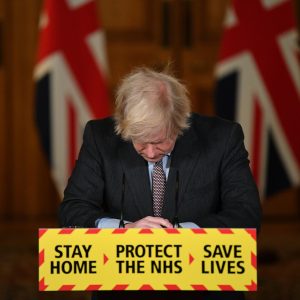Contents – Gen Z is revolting: Why the world’s youth will not be silenced
Contents
Zoomers – the young people born between 1997 and 2012 – have been taking to the streets this summer. They haven’t got a common ideology but they are angry about the state of world and feel hopeless for the future.
In the UK we have seen them on Saturday marches for Palestine, but in countries where Gen Z make up a significant proportion of the population, they have been toppling governments.
In Morocco, from where we have a frontline report, the government has remained in place, but police acted with a huge show of force, detaining almost 2,500 young people including under-12s. Near Agadir, normally known as a tourist resort, three young people were killed when the police fired on them with live ammunition.
In Madagascar and Nepal, leaders did flee in the face of what looked like a mass uprising. But as the editor of the Nepali Times writes, the young revolutionaries can’t decide what happens next. Nor are they particularly sympathetic to others’ freedom of expression. Journalists reporting on what happened in Nepal found themselves trolled online.
There is something else that marks out Gen Z. They are digital natives to their fingertips, theoretically able to exercise freedom – at least online - on a scale previous generations could only dream of. And yet many are afraid to say what they really think in public forums.
Up Front
Gen Z is revolting: Sally Gimson
The next generation are raising their voices, but what do they want?
The Index: Mark Stimpson
The latest in the world of free expression, including an update on our imprisoned former colleague
Features
Silence is the best option at Israeli universities: Akin Ajayi
If you hold a particular view, the campus is no place for academic freedom
The show must go on: Emily Boyle
Could it be curtains for the Purple Slut cabaret?
End for the NDAs which protected Harvey Weinstein?: Ruth Green
Bad businesses have been hiding behind the law. Zelda Perkins is out to stop them
Silenced over trans care article: Daisy Ruddock
Professionals are falling victim to the culture wars, left unable to discuss gender-affirming healthcare
An exceptional editor: Jo Glanville
A tribute to the late Index editor, Judith Vidal-Hall
Powerful Indian women cancelled in the classroom: Nilosree Biswas
Narendra Modi's solution to women who don't fit the narrative - delete them
The strange tale of a Russian rapper: John David Vandevert
Being a female US-style rapper is a step too far in Putin's Russia
Shock jocks of Uzbekistan: Katie Dancey-Downs
Culture wars are raging, and one side has got plenty to say
The secret graffiti grandma of Tehran: Fatemeh Jamalpour
Meet the woman sneaking out at night to spraypaint the worlds of the Iranian revolution
Censoring negativity: Cindy Yu
On Chinese social media, if you haven't got anything nice to say, don't say anything at all
Inside the mind of Madame War Criminal: JP O'Malley
Olivera Simić discusses her biography of Biljana Plavšić, and whether the Balkans have since made room for free speech
The exclusion of Palestinian voices: Raja Shehadeh
The missing piece in Donald Trump's plan
Gen Z is revolting: Why the world's youth will not be silenced
The revolution will be polarised: Katie Dancey-Downs, Yelyzaveta Buriak, Arthur O'Keefe
How Gen Z are influencing the world, and who’s influencing them
Shitposting and the rehabilitation of Pinochet: Juan Carlos Ramírez Figueroa
Chile’s rapid-fire social media content can lead to bad places, fast
Dissidents in disguise: Alexandra Domenech
Young critics in Belarus are hiding in plain sight
The summer of revolt: Viktória Serdült
From popstars to Pride – Gen Z in Hungary are speaking up
Gen Z’s secret language: Connor O’Brien
What do they meme?
The fight for freedom in Nepal: Sonia Awale
Between One Piece protests and upcoming elections, Gen Z are demanding government accountability
Discord for Morocco’s Gen Z: Omar Radi
A new style of protest that started with football fans and gamers
Uganda’s top TikTok trend: Danson Kahyana
Social media influencers beware. One judge in Uganda is coming down hard on government critics.
Young people haven’t given up the fight to be heard: Michael Deibert
Haiti’s cultural landscape is alive and kicking
Lessons from the Milk Tea Alliance: Mackenzie Argent, Jeffrey Wasserstrom
A look at the older siblings of today’s protests
Comment
How the far-right has weaponised free speech: Anshuman Mondal
When freedom of expression is for me and not for thee
You won’t fool the children of Kenya’s revolution: Samuel Kimeu
The Kenyan government must pay attention to the young protesters they are silencing
I want the full story: Jemimah Steinfeld
Unpicking the delicate line between censorship and an editorial decision
Tell the world what is happening to us: Rahima Mahmut
From Tiananmen Square to imprisoned female poets – a Uyghur musician writes about her inspiration
Culture
Secret words of hope: Kate Clanchy
Female Afghan poets give us a glimpse into their lives, through the power of verse
A chilling vision: Mark Stimpson, Kemi Ashing-Giwa
Welcome to this dystopian future, imagined by a Gen Z author
The shadow of injustice: Connor O’Brien, UPPN
We hear the story of a Nicaraguan political prisoner, in an exclusive comic
Zombies, women and power: Naomi Alderman
The author of The Power discusses her new book on our current times

